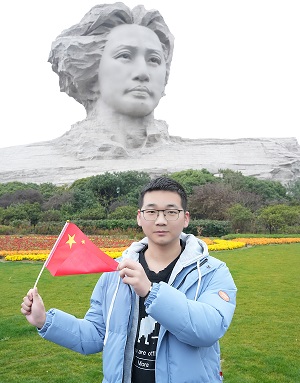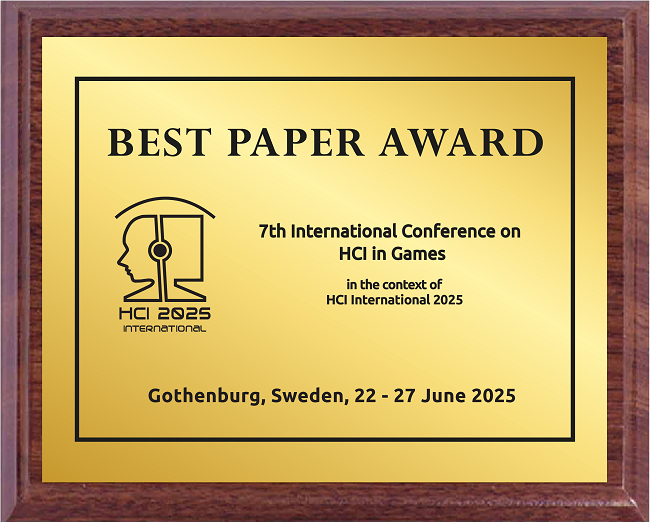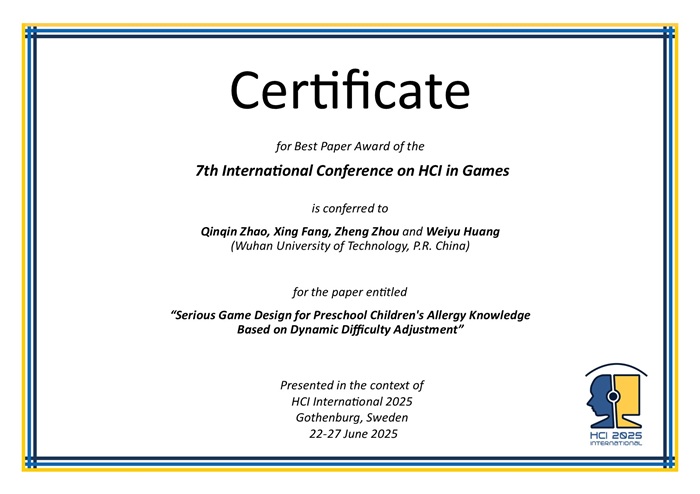The Best Paper Award of the 7th International Conference on HCI in Games
has been conferred to
Qinqin Zhao, Xing Fang, Zheng Zhou and Weiyu Huang
(Wuhan University of Technology, P.R. China)
for the paper entitled
"Serious Game Design for Preschool Children's Allergy Knowledge Based on Dynamic Difficulty Adjustment"

Zheng Zhou
(presenter)

Best Paper Award for the 7th International Conference on HCI in Games, in the context of HCI International 2025, Gothenburg, Sweden, 22 - 27 June 2025

Certificate for Best Paper Award of the 7th International Conference on HCI in Games presented in the context of HCI International 2025, Gothenburg, Sweden, 22 - 27 June 2025
Paper Abstract
Due to the limited awareness of the external environment, preschool children are difficult to identify the risk of allergy or take preventive measures, which leads to the occurrence of unconscious allergic reactions. Based on Dynamic difficulty adjustment (DDA), this study designed a popular science game for children's allergy knowledge, which used serious games to transfer knowledge within the acceptable range of children, aiming at improving preschool children's attention to allergy knowledge and improving their learning experience. The game is developed using Unity engine, combined with Long Short-Term Memory network (LSTM) to construct learning curve, and designed DDA adjustment mechanism to adapt to different children's cognitive characteristics. Through A/B test and System Usability Scale (SUS) evaluation, the user experience and learning effect of fixed difficulty and DDA version are compared. The research results show that DDA version significantly improves children's learning effect and protective consciousness transformation ability. This study proposes a new approach to health education for preschool children and explores the application of science education technology through practical cases.
The full paper is available through SpringerLink, provided that you have proper access rights.


